How Long Do Lip Tattoos Last – 7 Factors To Consider
Learn the secrets behind the lifespan of lip tattoos before getting them for your lips.
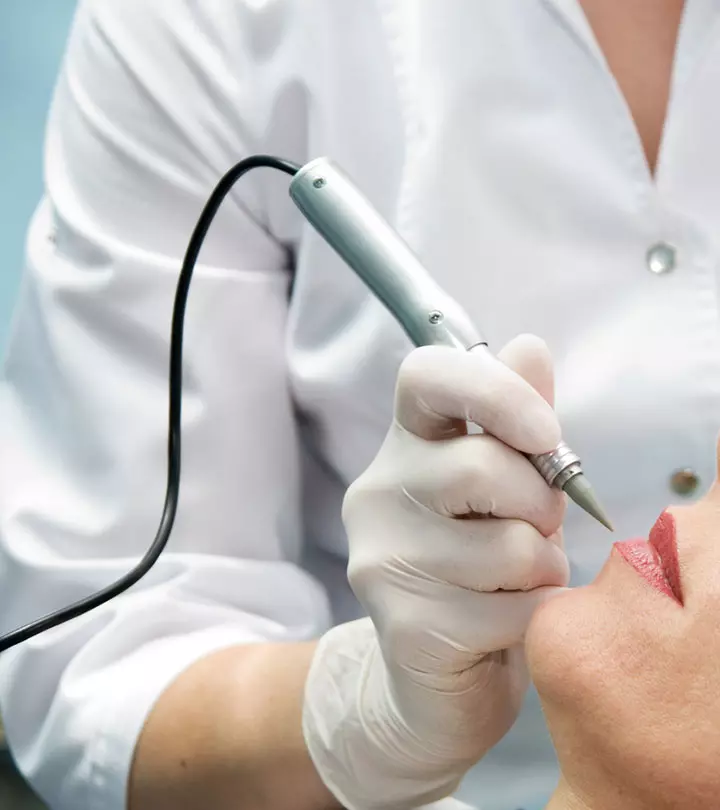
Image: Shutterstock
Many individuals intrigued by this unique form of body art often ponder, “How long do lip tattoos last?” The longevity of this unique form of body art depends on various factors, ranging from the ink type and application technique to individual lifestyle choices. Lip tattoos, known for their subtle charm and ability to enhance one’s natural features, require careful consideration of these factors. In this article, we will explore how these variables contribute to the overall durability of such an intricate and personal form of self-expression as lip tattoos.

In This Article
How Long Do Lip Tattoos Last?
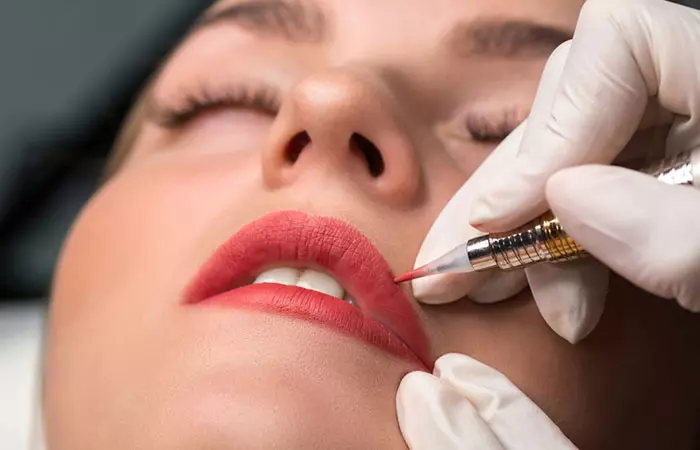
Surprisingly, despite being called a tattoo, lip tattoos are not permanent. They are a form of semi-permanent makeup that involves using PMU pigments instead of traditional ink. The body gradually breaks down these pigments, causing the color to fade over time. The inner lip tattoo, in particular, has a shorter lifespan due to the rapid regeneration of mucosal cells.
Well, the lifespan of a lip tattoo varies, typically lasting anywhere between 1 and 5 years. Regular top-ups are essential to maintain its vibrancy, but the short lifespan might just be the appeal for those uncertain about a forever commitment.
Sarah Sophy, a YouTuber, shared her personal experience with lip-blushing tattoos. She showcased the whole procedure and healing process. In her video, she referred to her tattoo artist and said. “She did a fantastic job I love the color, so far. I know it’s going to change as it heals. It’s gonna change color is going to flake off. At the moment I love this color but let’s see what it turns into when it heals (i).”
If lip-blushing tattoos are also on your mind, you should understand the whole process a little better and familiarize yourself with all its risks and benefits before proceeding.
 Quick Tip
Quick TipVarious factors contribute to the duration of a lip tattoo, influencing its longevity and vibrancy. Scroll down to understand these factors to manage expectations and ensure the desired outcome.
Key Takeaways
- Lip tattoos typically last 1 to 5 years, influenced by factors like ink type, application technique, and personal habits. Regular touch-ups every 1 to 2 years help maintain vibrancy.
- Despite being called tattoos, lip tattoos are semi-permanent, using PMU pigments that gradually fade over time. The inner lip tattoo has a shorter lifespan due to rapid mucosal cell regeneration.
- Fast-regenerating mouth cells, acidic environment, high moisture content, body chemistry, skin type, lifestyle choices, and skin care routines all play roles in determining how long lip tattoos last.
- Using anti-fading creams, fasting and rinsing, enhancing ink penetration, preventing infections, and avoiding irritation are crucial aftercare tips for optimal healing and extended tattoo life.
Factors That Determine How Long A Lip Tattoo Lasts

Ever wondered why lip tattoos do not stick around for long? This is because the longevity of lip tattoos highly depends on the environment inside the mouth, which is different for everyone. Here is the lowdown on what determines their lifespan:
- Fast-Regenerating Mouth Lining Cells
The inside of the mouth is composed of mucosal cells that regenerate at a rapid pace. In contrast to other areas of the body, wounds on the lips heal much faster, often within three days instead of weeks. The quick regeneration of mouth cells makes it challenging for tattoo ink to hold and results in lip tattoos not being permanent.
 Did You Know?
Did You Know?- Acidic Environment
The mouth contains various chemicals and acids that contribute to its acidic nature. These break down the pigments in lip tattoos over time, leading to the fading of the tattoo. Saliva, in addition to being acidic, creates a damp environment that is not favorable for lip tattoo longevity.
- High Moisture Content
The high moisture content in the mouth is not conducive to the longevity of tattoos. Water molecules can chemically break down the pigments and affect their stability in the skin, leading to faster fading.
There are some additional factors as well that are not directly related to the breaking down of the tattoo pigment but can affect its vibrance or longevity in some ways. Check them out below.
Other Factors
- Body Chemistry
Individual differences in body chemistry affect how quickly the body dissolves tattoo pigments.
Conditions like anemia, which involves iron deficiency, can accelerate pigment fading as most pigments contain iron oxides.
- Skin Type
Dry to normal skin tends to retain pigments better than oily skin. Oily skin, due to the overproduction of sebum, can push out pigments, resulting in faster fading.
- Lifestyle
Factors like exposure to sunlight, frequent swimming, and smoking can accelerate the fading of lip tattoos. Recently tattooed lip skin contains tiny perforations, which makes the skin more vulnerable to sunburn than usual, posing a risk for your skin and the tattoo’s appearance. Similarly, chemicals in pools and salt water can chemically react with pigments and break them down due to their natural bleaching effects.
- Skin Care Routine
Certain skin care ingredients, such as retinol and acids, can accelerate pigment fading. Beauty treatments like exfoliation and chemical peels may also contribute to the removal of pigmented cells.
Understanding these factors helps you appreciate the unique challenges of cosmetic tattooing on lips. It is not just about the art; it is about how well it can stand the test of time in the ever-dynamic environment of your lips. Scroll down to explore aftercare tips that will contribute to maintaining the vibrancy and lasting effect of your lip tattoo.
Aftercare Tips For Lip Tattoos
Although it is not a permanent tattoo, proper care is essential after getting a lip tattoo to ensure optimal healing and extend the life of the tattoo. Here are some tips to follow:
- Choose A Professional Artist
Start by selecting a professional tattoo artist with experience in lip tattoos. Lip tattooing is unique in various aspects as compared to regular tattooing, and having an artist familiar with the intricacies of this specific area is crucial for a successful outcome.
- Utilize Anti-Fading Creams
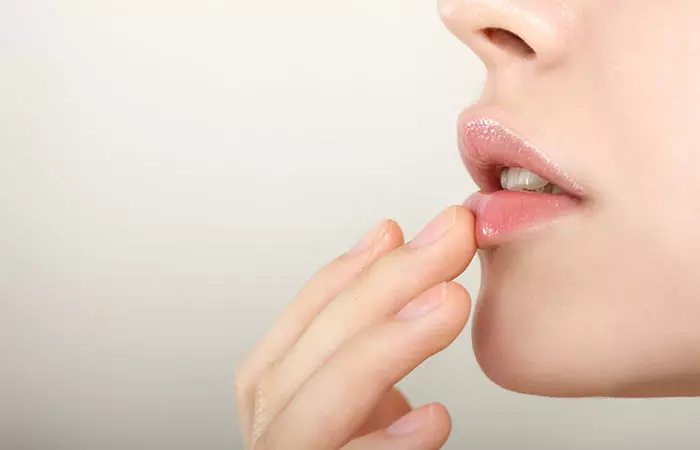
Use an anti-fading cream regularly to keep your lip tattoo looking vibrant and fresh. These creams are specially made for lip tattoos and often contain ingredients that nourish and protect the skin, helping to extend the life of the tattoo’s pigment.
- Fast And Rinse
Avoid eating or drinking immediately after getting the tattoo as advised by your tattoo artist. The duration of the fasting period varies based on the tattoo size, your skin type, and overall health. If you are a smoker, rinse your mouth after smoking during the fasting period to prevent infections.
- Enhance Ink Penetration With A Paper Towel
Gently press a paper towel between your lips to improve ink penetration, as it absorbs the excess ink through capillary action and leaves the skin pores open to absorb maximum ink. Be cautious not to overdo it to avoid smudging.
- Prevent Infections
Due to the abundance of bacteria in the mouth, there is a higher risk of infection with lip tattoos. Use an alcohol-free mouthwash to rinse your mouth after every meal or smoking session to reduce the risk of harmful microorganisms reaching the tattoo site. While it does not guarantee complete immunity, it helps reduce the possibility of harmful bacteria affecting the tattoo.
- Avoid Irritating The Area
Keep the tattoo site dry and refrain from consuming foods and beverages that may irritate it during the healing process. Avoid acidic or spicy foods during the healing period, as they may interfere with the ink settling. Striking a balance between keeping the area dry and preventing excessive dryness or cracking is essential for optimal healing.
Note: Just like following good aftercare practices, remember that preparing well for a lip tattoo is equally important to improve the results and ease the process. Stay hydrated and moisturize your lips regularly in the days leading up to your appointment to prevent dryness. Further, also avoid alcohol, caffeine, and blood-thinning medications 24 hours before the procedure, as these can increase bleeding. Ensure your lips are free from cuts or cold sores, and always follow your artist’s specific pre-tattoo instructions.
The temporary nature of lip tattoos may serve as an appealing option for those seeking a personalized yet transient form of self-expression. The longevity of lip tattoos is a complex interaction of various factors. Each of them contributes to the unique characteristics of this form of body art. Remember, the unique environment in the mouth plays a significant role in determining how long lip tattoos last. Keeping the area clean, minimizing bacterial exposure, and ensuring proper aftercare contribute to the longevity and vibrancy of the lip tattoo. Whether you choose subtle enhancements or bold statements, you need to understand and consider factors that are essential for optimal care and the extended enjoyment of this unique form of self-expression. Also, if you are wondering, “Do lip tattoos hurt the same for everyone?” Understanding the pain levels and how to manage them can be crucial before getting your lip tattoo. You must know that lip tattoos rank high on the pain scale and can fade faster than other areas.
Frequently Asked Questions
What should I expect during the lip tattoo procedure?
You can expect some mild discomfort during the tattooing process as it involves many tiny needles. The area may feel sensitive, but a numbing cream is usually applied beforehand to minimize pain.
Are there specific lip products I should avoid after getting a lip tattoo?
Yes, avoid using products with alcohol, strong fragrances, or harsh chemicals as they can irritate the healing skin. Stick to gentle, unscented balms to keep your lips moisturized.
How often do lip tattoos need to be touched up?
Lip tattoos typically require touch-ups every 1 to 2 years to maintain vibrancy and color intensity. Factors such as individual lifestyle, skin type, and aftercare practices can influence the frequency of touch-ups.
Can you remove a lip tattoo if you’re not satisfied?
Removing a lip tattoo is possible, but it can be challenging. Options include laser tattoo removal or other professional removal methods. However, complete removal may not be guaranteed, and multiple sessions may be needed. It’s crucial to consult with a tattoo removal specialist for personalized advice.
Illustration: How Long Do Lip Tattoos Last – 7 Factors To Consider

Image: Dall·E/StyleCraze Design Team
If you are curious about the pain level of lip tattoos, check out this insightful video where a tattoo enthusiast debunks the common perception and presents the reality of getting inked on your inner lip.
Personal Experience: Source
StyleCraze's articles are interwoven with authentic personal narratives that provide depth and resonance to our content. Below are the sources of the personal accounts referenced in this article.
(i) Lip blush tattoo on dark lips – full 10-month healing processhttps://www.youtube.com/watch?v=Xulxbip6h1s
Read full bio of Ashutosh Bairagi
Read full bio of Manjari Uppal
Read full bio of Shatabdi Bhattacharya
Read full bio of Joyce Joyson





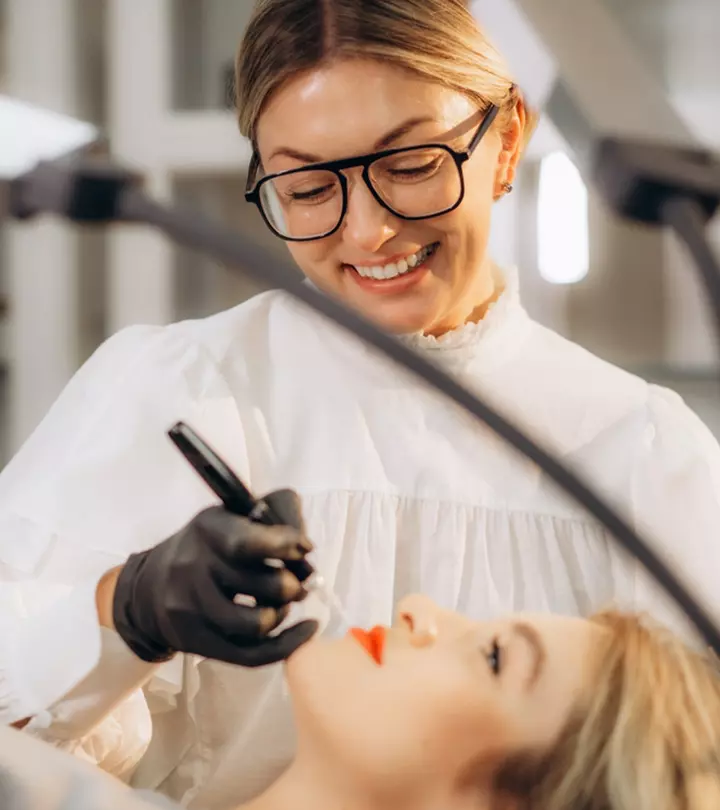
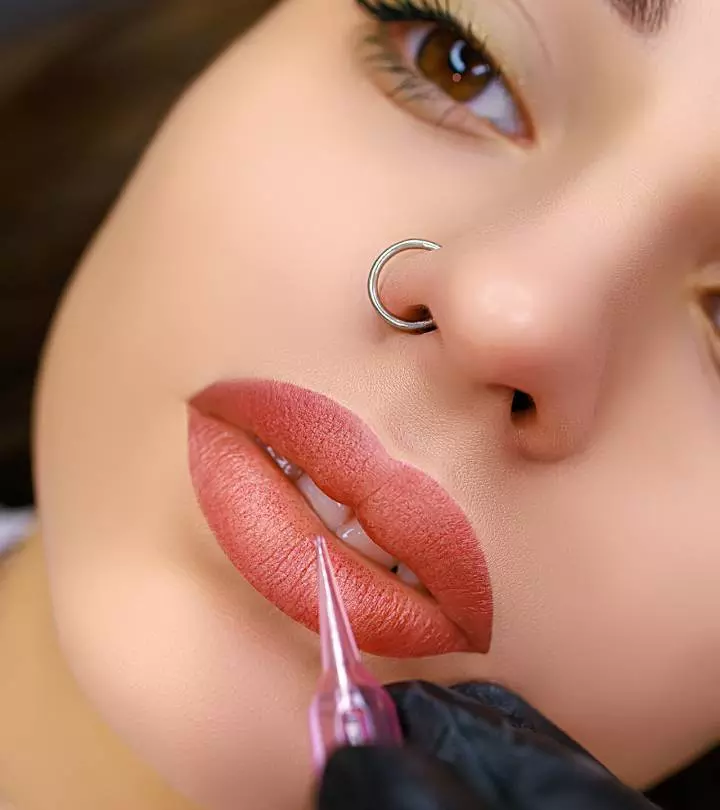




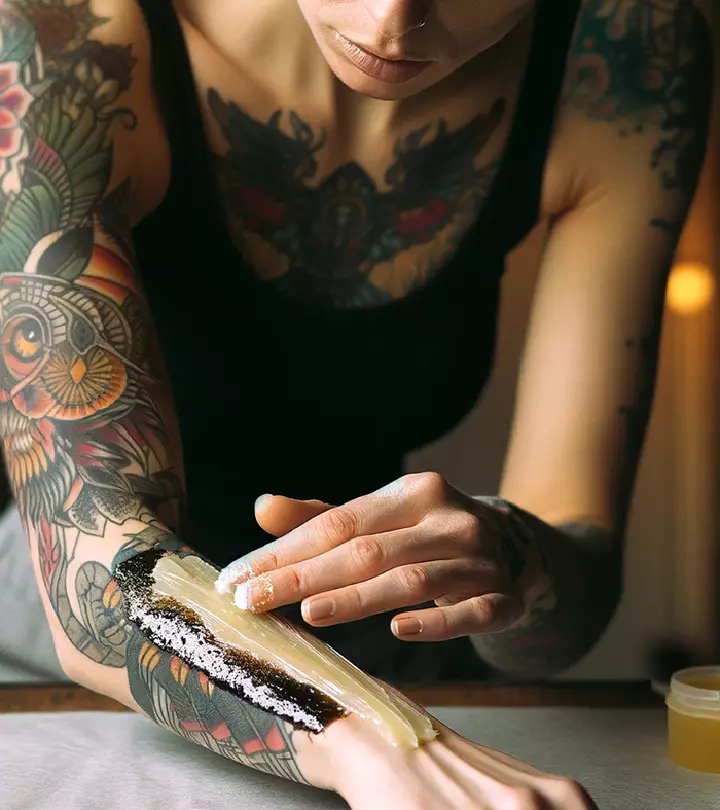

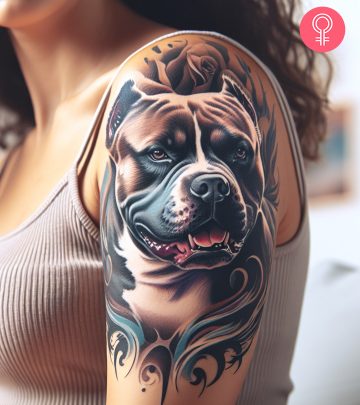











Community Experiences
Join the conversation and become a part of our empowering community! Share your stories, experiences, and insights to connect with other beauty, lifestyle, and health enthusiasts.